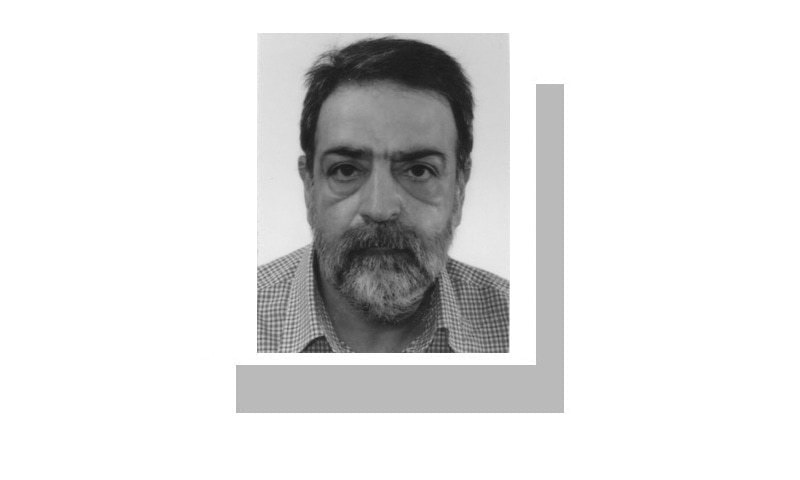ONE of Vladimir Putin’s characteristic traits is an ability to drive the West nuts. The Russian president’s military mobilisation on the borders of Ukraine — up to 135,000 well-equipped troops, by US estimates — is the latest in a series of manoeuvres that leave the US and its European allies squabbling over a concerted response.
Whichever way you look, though, it should be painfully obvious to anyone who has dealt with Putin over the past couple of decades that an almost daily barrage of threats is hardly likely to persuade him to back down. If anything, it is likely to produce the opposite effect. As a de-escalation strategy, it sucks.
A relentless crescendo of claims that the massing of Russian forces could mean only one thing, an imminent invasion of Ukraine, has ominously begun to resemble war drums. Ukraine is being plied with military hardware and military trainers, and reinforcements are being sent to Nato member states bordering Russia — which can only serve to heighten Moscow’s apprehensions.
In the last years of the Soviet Union, the Gorbachev administration was generally a bit too keen to appease the West on the foreign policy front, but drew the line at Nato’s eastwards expansion, making it a condition for the reunification of Germany and the dissolution of the Warsaw Pact. Don’t worry, the leadership in Moscow was told at the highest level by the US, Germany, Britain and even Nato, it’s never going to happen.
The drums of war can’t be blamed on Putin alone.
In retrospect, it was a grave mistake not to obtain a written agreement. The verbal assurances were violated within 10 years. Even Boris Yeltsin, beholden as he was to the West for helping to sustain him in power, reeled at the prospect — unless Russia, too, could join the club.
An intriguing historical footnote in this context is that Moscow first applied to join Nato in 1954. The application was peremptorily vetoed by the US and UK, and the USSR went on to establish the Warsaw Pact the following year. Europe’s history in the second half of the 20th century might have been somewhat different in the event of a less hostile Western response to the Soviet overture.
Anyhow, Nato welcomed Hungary, Poland and the Czech Republic in 1999, and former Soviet states Estonia, Latvia and Lithuania — alongside Bulgaria, Romania, Slovakia and Slovenia — in 2004, the latter under Putin’s watch. Four years later, when Nato declared that Ukraine and Georgia would join the pact at some point, Putin’s simmering wrath boiled over.
At a Nato summit in Bucharest in April 2008, he is quoted as having told his US counterpart: “George, you have to understand that Ukraine is not even a country. Part of its territory is in Eastern Europe and the greater part was given to us.” He developed this theme at much greater length in an extended essay published last year, reportedly arguing that historical and cultural affinities essentially make Russia and Ukraine inseparable.
Notwithstanding Putin’s keen sense of history, that kind of conclusion is obviously highly debatable. Like so many other countries in its vicinity, Ukraine has a complicated past and ethnocultural fault lines — but that hardly qualifies it as ripe for Russian reconquest.
There’s good cause to suspect, however, that there’s more than an element of malice aforethought in dystopian Western visions of Russian troops marching into Kiev any moment now. The same thought applies to the weekend “revelation” from London, naming the puppets Putin has picked to put into power after establishing control over Ukraine.
There’s an ominous echo here of the ‘sexed up’ Blair-era dossier and US ‘intelligence’ on weapons of mass destruction that preceded the 2003 aggression against Iraq. Is it purely coincidental that both Boris Johnson and Joe Biden are currently desperate for distractions from their respective domestic woes? Mind you, so too in Putin, albeit less urgently.
Ukraine’s Volodymyr Zelenskiy-led government, consisting to a considerable extent his associates from Zelenskiy’s years as a TV comedy star, is hardly a paragon of democratic virtue, and there were interesting revelations about the ‘anti-corruption’ president and his key colleagues in last year’s Panama Papers. And the clownish aspect hardly stands out in a world where the portals of power are liberally populated with jesters.
But the insincere Western embrace will deter the government in Kiev from granting eastern Ukraine the autonomy it deserves, and curbing its enthusiasm for Nato and the EU — whose German and French stalwarts anyhow seem rather less keen than the Americans to further enrage Moscow.
Implementing the Minsk II settlement of 2015 would probably persuade Putin to back off, triggering a thaw in the new cold war. As for anyone still wondering why Moscow might be resisting Kiev’s Nato/EU fixation, just try to imagine how Washington might react if Canada or Mexico sought a military alliance with Russia, or even economic integration with China.
Published in Dawn, January 26th, 2022










































